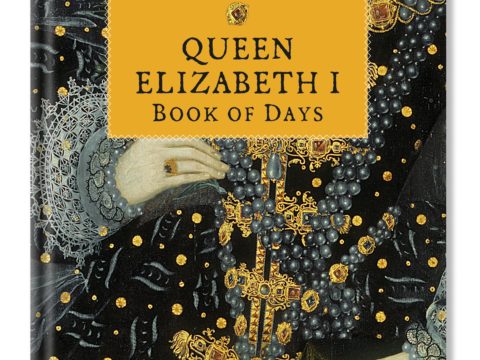Anne of Cleves: Life Story
Chapter 4 : Wedding Bells
Henry’s Council was set to looking for an escape route. Anne’s old betrothal to Francis of Lorraine was brought up again. The ambassadors who had accompanied Anne did not seem to think the issue was terribly important – they obviously did not know that Henry was looking for a way out. They assured him that it had been formally cancelled, and, on 5th January, the day before the wedding was due to take place, promised to send notarised copies of the dissolution and the appropriate dispensation within three months.
Meanwhile, on Saturday, 3rd January 1540, Anne had been formally welcomed to the country in a grand spectacle at Blackheath. On her arrival, she was greeted by the great ladies of the realm, led by Henry’s daughter-in-law, Mary, Duchess of Richmond, and his nieces, Frances Brandon, Lady Marquis of Dorset, and Lady Margaret Douglas.
Anne withdrew into a tent to change her clothes and partake in a banquet. Informed of her arrival, the king’s cavalcade set out to meet her. Preceded by his trumpeters, it consisted of his council, his legal officers and the gentlemen of his privy chamber; next came the barons, bishops, earls and dukes, The Marquis of Dorset followed, bearing the sword, with the king himself directly behind him. On either side of the king’s route his gentlemen pensioners were lined up for the king to pass between, before finding himself face to face with Anne. The French ambassador, Marillac, described Anne on this occasion. Marillac was never one to hand out compliments, and his view of Anne was temperate – she was not so handsome as had been reputed, she was tall and thin, looked to be about thirty, and had an air of steadiness and gravity, that, he thought, partially counterbalanced her lack of beauty.
The king embraced his new spouse and Anne politely thanked him, having learnt her speech in English. So far as the crowd were concerned, there was nothing amiss, and Anne was praised for her queenly demeanour and gracious manners. Henry, too, was on his best behaviour. Both dressed in cloth of gold, they rode side-by-side to Greenwich, where he personally conducted her to the queen’s apartments. Three days later, they were married in the Queen’s Closet there.
Henry had been persuaded, reluctantly, that he must pursue the arrangements. ‘My Lord,’ he told Cromwell, ‘if it were not to satisfy the world, and my realm, I would not do that I must do this day for none earthly thing.’ The final push for Henry was the news that the emperor and French king had recently met, and their unlikely alliance seemed firm.
The wedding took place in the morning. Henry was dressed resplendently in a gown of cloth-of-gold, with silver embroidery and bands of dark fur. His coat was of crimson satin fastened with diamonds and hanging round his neck was one of his great golden chains.
Anne’s outfit was equally magnificent, although in the German style that her new subjects thought so unflattering. She, too, was in cloth-of-gold with embroidered flowers, and her unbound hair was topped by a coronet. Two of her brother’s nobles accompanied her, and one, the Count of Overstien, gave her away. Archbishop Cranmer performed the service, and Henry placed a ring, engraved with the words ‘God send me well to keep’, onto his new wife’s finger. After the nuptials, Mass was offered in the King’s Closet.
Bride and groom retired separately to change into more splendid outfits – Henry into a gown of tissue, and crimson velvet, and Anne into another gown in German style, with full sleeves above the elbow. The day was worn away with an elaborate meal, another church service and a masque, but, eventually, the time came for the couple to consummate their union.
With a huge intake of breath, Henry went into the bedchamber, where Anne was awaiting him, prepared by her ladies to receive the attentions of her stout, unhealthy and no-longer-youthful husband. Henry gave far too much information about subsequent events. He ‘felt her breasts and her belly’, and found the former to be so ‘slack’ and other parts of her body to be ‘in such sort’ that he rather doubted whether she were, in truth, a maid. In fact, he could never ‘in her company, be provoked and steered to know her carnally.’ Apologies to any readers who now have unwelcome images in their minds!
Henry tried valiantly for a few weeks to overcome his inability to perform his duties. He went every night to his queen’s chamber, but by the middle of February he still said that she was as much a virgin as he had found her. None of this, Henry declared, was his fault – his doctor assured everyone that Henry had given evidence of still being capable of performing the marital act. It was all Anne’s fault – there was something amiss with the marriage – either she was not a virgin, or there was an impediment to the match.
Anne of Cleves
Family Tree
